
Entertainment
-
 Greece introduces ‘MyCoast’ App to tackle beach violations
In an effort to enforce newly implemented stringent beach regulations, Greece has launched the ‘MyCoast’ app, empowering users to report beach violations effortlessly.03 May 2024Read More...
Greece introduces ‘MyCoast’ App to tackle beach violations
In an effort to enforce newly implemented stringent beach regulations, Greece has launched the ‘MyCoast’ app, empowering users to report beach violations effortlessly.03 May 2024Read More... -
 European Court of Human Rights rejects Kirkorov’s case against Lithuania entry ban
The European Court of Human Rights (ECtHR) has dismissed a complaint filed by Russian pop star Philipp Kirkorov against Lithuania's decision to bar his entry into the country.23 April 2024Read More...
European Court of Human Rights rejects Kirkorov’s case against Lithuania entry ban
The European Court of Human Rights (ECtHR) has dismissed a complaint filed by Russian pop star Philipp Kirkorov against Lithuania's decision to bar his entry into the country.23 April 2024Read More... -
 Risnjak National Park: Croatia's hidden gem wins Europe's top spot
Nestled within Croatia's picturesque Gorski Kotar region, Risnjak National Park emerges as a beacon of untouched beauty, earning recognition as one of Europe's premier destinations sans the23 April 2024Read More...
Risnjak National Park: Croatia's hidden gem wins Europe's top spot
Nestled within Croatia's picturesque Gorski Kotar region, Risnjak National Park emerges as a beacon of untouched beauty, earning recognition as one of Europe's premier destinations sans the23 April 2024Read More... -
 Swiss castles experience record visitor numbers
In 2023, the National Association of Swiss Castles witnessed a historic milestone, welcoming over 1.3 million visitors to its 28 castles. This achievement marks a new record for the organization,23 April 2024Read More...
Swiss castles experience record visitor numbers
In 2023, the National Association of Swiss Castles witnessed a historic milestone, welcoming over 1.3 million visitors to its 28 castles. This achievement marks a new record for the organization,23 April 2024Read More... -
 Underground surge: Belgium grapples with 2,214 illegal gambling websites
Research conducted by gambling analysis firm Yield Sec has unveiled a concerning trend in Belgium's online gambling landscape. According to their findings, a staggering 2,214 illegal gambling14 April 2024Read More...
Underground surge: Belgium grapples with 2,214 illegal gambling websites
Research conducted by gambling analysis firm Yield Sec has unveiled a concerning trend in Belgium's online gambling landscape. According to their findings, a staggering 2,214 illegal gambling14 April 2024Read More... -
 Flanders and Brussels Embrace Slow Art Day, inviting visitors to savor artistic experiences
On April 13th, several museums in Flanders and Brussels will once again host a variety of activities as part of Slow Art Day, an annual tradition aimed at encouraging a deeper12 April 2024Read More...
Flanders and Brussels Embrace Slow Art Day, inviting visitors to savor artistic experiences
On April 13th, several museums in Flanders and Brussels will once again host a variety of activities as part of Slow Art Day, an annual tradition aimed at encouraging a deeper12 April 2024Read More... -
 4 Croatian beaches named Europe’s best
As Croatia gears up for what promises to be its most spectacular summer season yet, the BookRetreats Summer 2024 Report has officially unveiled the top beaches across Europe, catering to10 April 2024Read More...
4 Croatian beaches named Europe’s best
As Croatia gears up for what promises to be its most spectacular summer season yet, the BookRetreats Summer 2024 Report has officially unveiled the top beaches across Europe, catering to10 April 2024Read More...
Politics
-
 Gabriel Attal announces a "major national exhibition" on slavery in 2026
Prime Minister Gabriel Attal announced on Friday in La Rochelle the holding of a "major national exhibition" in 2026 on the memory of slavery, as well as the future creation of aRead More...
Gabriel Attal announces a "major national exhibition" on slavery in 2026
Prime Minister Gabriel Attal announced on Friday in La Rochelle the holding of a "major national exhibition" in 2026 on the memory of slavery, as well as the future creation of aRead More... -
 Swedish PM grapples with allegations of far-right 'troll farm' as coalition faces strain
Read More...
Swedish PM grapples with allegations of far-right 'troll farm' as coalition faces strain
Read More...
Swedish Prime Minister Ulf Kristersson has affirmed his serious consideration of allegations regarding a "troll farm" reportedly operated by the far-right Sweden Democrats (SD), a party on -
 Ukraine's soldier salary conundrum: the cost of defense amidst Russian aggression
For many months, there have been inexplicable phenomena in the Ukrainian army. The number of volunteers is decreasing, many people with military specialties and even military retireesRead More...
Ukraine's soldier salary conundrum: the cost of defense amidst Russian aggression
For many months, there have been inexplicable phenomena in the Ukrainian army. The number of volunteers is decreasing, many people with military specialties and even military retireesRead More... -
 EU investigates Meta over Russian disinformation concerns
The European Commission has initiated formal investigation proceedings against Meta regarding its management of political content, including a suspected Russian influence campaign, amidRead More...
EU investigates Meta over Russian disinformation concerns
The European Commission has initiated formal investigation proceedings against Meta regarding its management of political content, including a suspected Russian influence campaign, amidRead More...
News
-
 Belgian Princess Elisabeth sets course for Harvard
The Belgian Royal Court has confirmed that Princess Elisabeth, the heir to the throne, will pursue her education at Harvard University in Boston, marking a significant step in herRead More...
Belgian Princess Elisabeth sets course for Harvard
The Belgian Royal Court has confirmed that Princess Elisabeth, the heir to the throne, will pursue her education at Harvard University in Boston, marking a significant step in herRead More... -
 Education unions initiate series of strikes across Flanders
Education unions ACOD Education, COC, and VSOA Education are set to organize demonstrations across five Flemish cities in May as part of a series of strikes. The unions' discontent stemsRead More...
Education unions initiate series of strikes across Flanders
Education unions ACOD Education, COC, and VSOA Education are set to organize demonstrations across five Flemish cities in May as part of a series of strikes. The unions' discontent stemsRead More... -
 Algerian nationals can now be detained prior to deportation, court decides
The highest Dutch court ruled on Monday that Algerian nationals whose asylum requests have been rejected can once again be detained pending their deportation.Read More...
Algerian nationals can now be detained prior to deportation, court decides
The highest Dutch court ruled on Monday that Algerian nationals whose asylum requests have been rejected can once again be detained pending their deportation.Read More... -
 Transfers of asylum seekers to other EU member states increasing
Belgium transferred 1,241 asylum seekers to another European Union member state last year, where they already had a pending procedure. The number of transfers by Belgium has been onRead More...
Transfers of asylum seekers to other EU member states increasing
Belgium transferred 1,241 asylum seekers to another European Union member state last year, where they already had a pending procedure. The number of transfers by Belgium has been onRead More... -
 Polish cheesecake ranked as world's No.1
Polish ‘sernik’ has claimed the top spot on the list of the Top 8 cheesecakes in the world. Cheesecake. Cheesecake. Photo: PAP/Darek Delmanowicz According to TasteAtlas, which curated theRead More...
Polish cheesecake ranked as world's No.1
Polish ‘sernik’ has claimed the top spot on the list of the Top 8 cheesecakes in the world. Cheesecake. Cheesecake. Photo: PAP/Darek Delmanowicz According to TasteAtlas, which curated theRead More... -
 Wealthy family to clear debts for 3,000 Rotterdam families, mirroring Arnhem's initiative
Following Arnhem's announcement to absolve debts for around 50 households in Immerloo, recognized as the most financially distressed area in the Netherlands, a Rotterdam-based family,Read More...
Wealthy family to clear debts for 3,000 Rotterdam families, mirroring Arnhem's initiative
Following Arnhem's announcement to absolve debts for around 50 households in Immerloo, recognized as the most financially distressed area in the Netherlands, a Rotterdam-based family,Read More... -
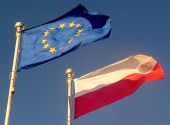 'Good to be together': celebrating 20 years of Poland in the EU
Poland's government has initiated a special social and informational campaign titled "Good to Be Together: 20 Years of Poland in the European Union," marking a significant milestone in theRead More...
'Good to be together': celebrating 20 years of Poland in the EU
Poland's government has initiated a special social and informational campaign titled "Good to Be Together: 20 Years of Poland in the European Union," marking a significant milestone in theRead More... -
 ÖBB unveils Summer Train Timetable with construction updates
As summer approaches, Austria's ÖBB gears up for extensive construction activities in the eastern region, leading to adjustments in train schedules along certain routes.Read More...
ÖBB unveils Summer Train Timetable with construction updates
As summer approaches, Austria's ÖBB gears up for extensive construction activities in the eastern region, leading to adjustments in train schedules along certain routes.Read More... -
 Rare book theft: Europol cracks down on international gang
In a collaborative effort involving European law enforcement agencies, Europol successfully apprehended four suspected individuals involved in the theft of antique and rare books.Read More...
Rare book theft: Europol cracks down on international gang
In a collaborative effort involving European law enforcement agencies, Europol successfully apprehended four suspected individuals involved in the theft of antique and rare books.Read More...

Most Read
- Teen held after US woman killed in London stabbings
- Football: Farhad Moshiri adamant Everton deal above board
- Greece hails new post-bailout chapter but concerns remain
- The Kokorev case caused wide discussion in Brussels
- EU accession talks stir debate in Moldova: insights from Gagauzia's leader, Yevgenia Gutsul
Economics
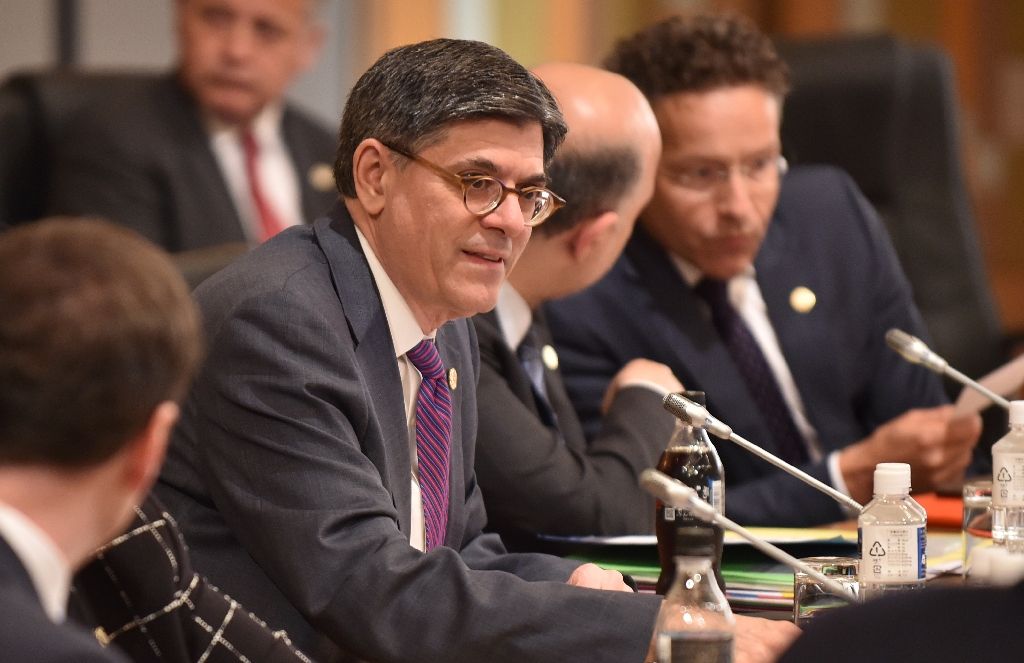
G7 finance ministers on Saturday voiced concern about the sputtering global economy as they looked for a plan to stoke growth, while a currency policy clash overshadowed their meetings.
The club of rich nations also pledged to tackle tax avoidance in the wake of the Panama Papers investigation and beef up efforts to disrupt the murky world of terrorism financing.
Two days of talks at a hot spring resort in northern Japan focused on how to stoke global growth which they said was under threat from myriad challenges, including terrorism, refugee flows and the threat of Britain's exit from the European Union.
The ministers were unanimous in opposing the prospect of a "Brexit", saying it would inflict a "shock" on the global economy that would only worsen the outlook at a time of geopolitical instability.
Host Japan was keen to get its G7 counterparts on board with the view that fiscal stimulus is the best way to kickstart global growth, but Germany and Britain were cool on the idea.
On Saturday, the group suggested a go-your-own-way approach.
"(We) discussed how to employ a balanced policy mix -- monetary, fiscal, and structural -- taking into account country-specific circumstances," they said in concluding remarks.
Japan's determination to tame the resurgent yen was another sensitive topic, after its repeated threats to intervene in forex markets put it on a collision course with its G7 counterparts.
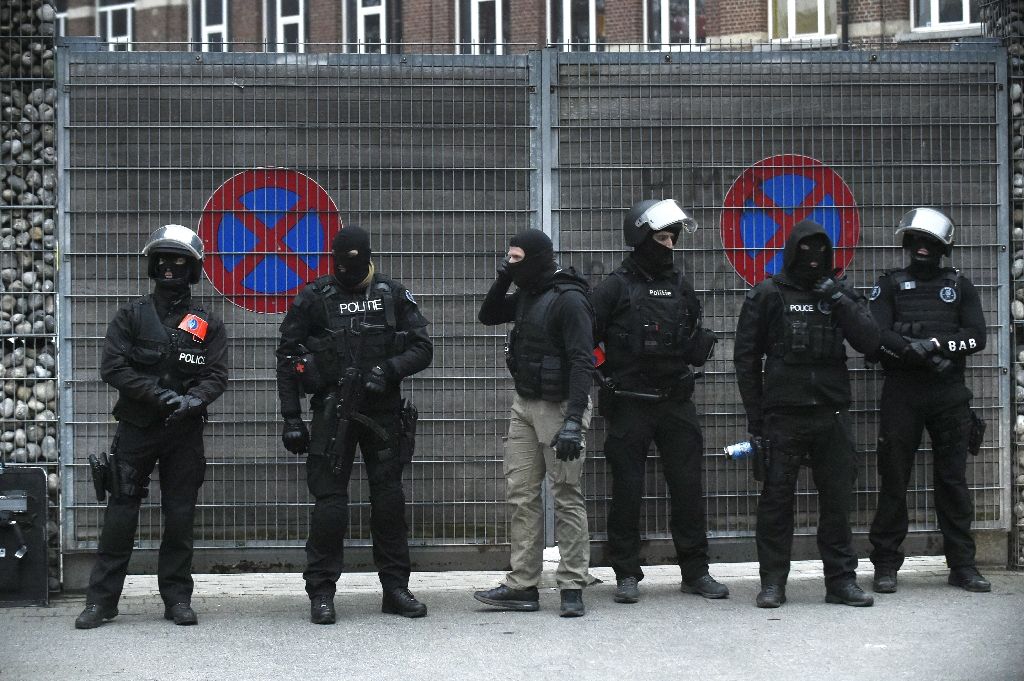
French anti-terror judges will Friday begin their first questioning of Salah Abdeslam, a member of the jihadist cell which killed 130 people in a series of attacks in Paris in November.
The 26-year-old arrived early Friday for interrogation in central Paris under heavy security, escorted by military police, elite police units and a helicopter.
Authorities hope Abdeslam will be able to shed light on the operational details of the Paris attacks, as well as provide clues as to whether other cell members are still at large.
For months, Abdeslam was the most wanted fugitive in Europe until he was tracked down and arrested on March 18 in the Brussels neighbourhood of Molenbeek where he grew up.
Transferred to France under high security on April 27, he has since been held at Fleury-Merogis prison, southeast of Paris.
- Key role -
A childhood friend of suspected ringleader Abdelhamid Abaaoud, Abdeslam is thought to have played a key role both on the night of the Paris attacks on November 13, and in their preparation.
Two others have been arrested in France in connection with the attacks carried out by the Islamic State group, but they are considered secondary participants.
Abdeslam played a key role, dropping off the three suicide bombers who blew themselves up outside the Stade de France national stadium in northern Paris.
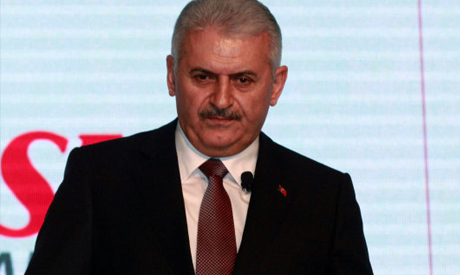
Turkey's ruling party named a loyal ally of President Recep Tayyip Erdogan as the new prime minister Thursday, with the incoming premier immediately vowing to "work in total harmony" with the strongman leader.
The ruling Justice and Development Party (AKP) will officially appoint Transport Minister Binali Yildirim as its chairman Sunday, meaning he will automatically become prime minister.
Yildirim will replace Ahmet Davutoglu, who stepped down after a struggle with Erdogan, as the president seeks to concentrate more power in the presidential office.
"We will work in total harmony with all our party comrades at all levels, beginning with our founding president and leader," said Yildirim after being named party head, referring to Erdogan.
The 60-year-old Yildirim is seen as one of Erdogan's closest longtime confidants and has served an almost unbroken stint from 2002 to 2013 as transport minister and then again from 2015.
They are both strongly opposed to resuming talks with the outlawed Kurdistan Workers Party (PKK), the Kurdish militant group that has claimed responsibility for several attacks across Turkey since a two-year-long ceasefire collapsed in 2015.
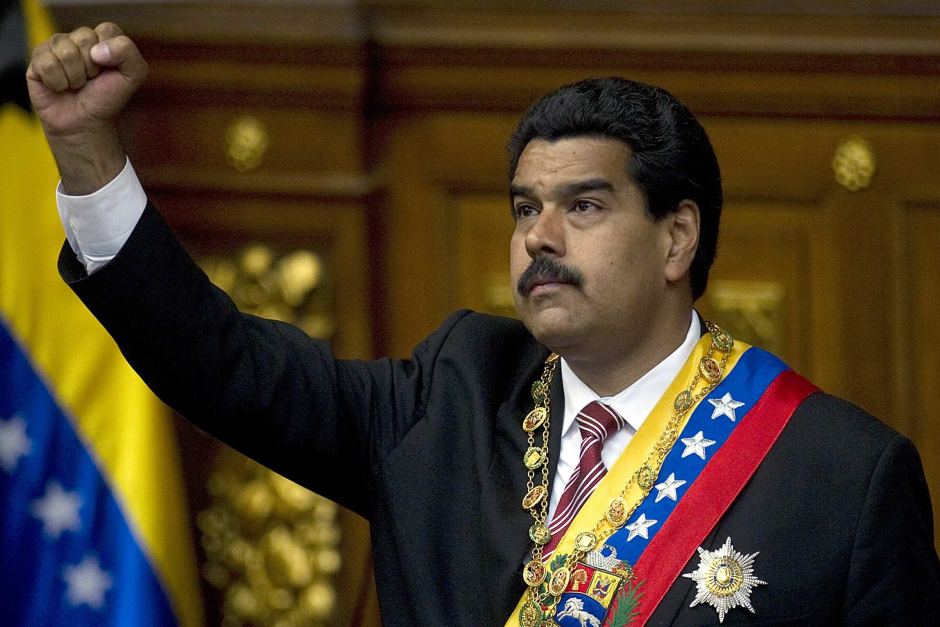
Protests were to take place across Venezuela on Wednesday against President Nicolas Maduro in the first challenge to sweeping powers he has decreed for police and soldiers under a state of emergency.
The opposition-led marches in Caracas and other cities were to demand that authorities validate a recall referendum seeking Maduro's ouster.
But the 53-year-old president has dismissed the push against him.
On Tuesday he said the referendum was "not viable" and a petition it was based on with 1.8 million signatures was riddled with "fraud."
The 60-day state of emergency was imposed from Monday to tackle what Maduro said were threats to security, as well as food and energy shortages.
Many of the measures rely on Venezuela's army and police being deployed to carry them out.
It notably suspends many constitutional protections by opening the way to expropriations and almost any action deemed necessary to maintain public order.
Individuals, companies and non-governmental organizations in Venezuela with links to foreign groups are also to be put under scrutiny and risk having their finances frozen, according to the decree.
The opposition-controlled congress late Tuesday rejected the decree in a vote, saying it undermined democracy. But the Supreme Court may overrule that, as it has with other congressional decisions.

A few days ago it was announced that Rosneft would be making its first LNG delivery to Egypt. However, according to Russian Mass Media, this deal does not look very promising. For example: the contract volume, which was announced a year ago, has already decreased. In addition, to the decrease in volume there are other risks associated with this contract. The first is linked to Egypt’s plans to develop its own offshore drilling, and the second, to the possible problems EGAS will have making payments for Rosneft’s LNG. However, Rosneft has accepted these risks in the hope of earning from the high price.
According to experts, such a "risky" deal could be due to the financial difficulties, the company has recently been facing since the drop in oil prices. Given the status of the oil giant, it is believed that they just need to show that the company is "profitable". This is why, according to experts, Rosneft is willing to engage in risky projects.
In mid-April a suit was filed against Russian pipeline operator Transneft, regarding their preferred shares. The plaintiff, OOO “Projector” is a little known company that bought 141 preferred shares (0.0019% of the share capital) of Transneft last year. In its claim it stated that dividends on preferred shares were not paid in full as Transneft reported a lower net profit in order to avoid profit distribution to its subsidiaries. The plaintiff insisted that due to the fact that the dividends were not paid in full the preferred shares should be converted by the court to voting shares.
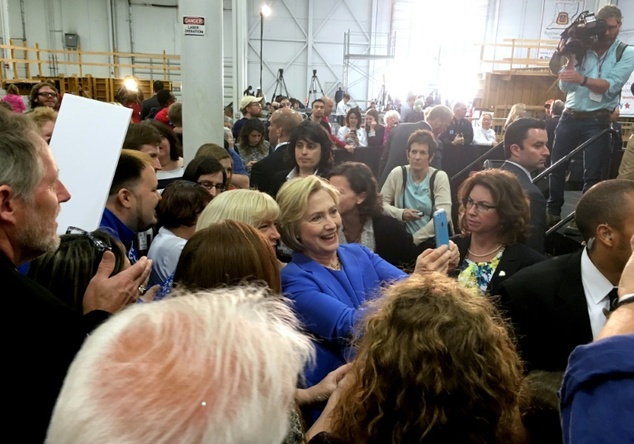
Hillary Clinton claimed a narrow victory in Kentucky as she sought to put away Bernie Sanders, but her resilient rival for the Democratic presidential nomination bounced back to snatch a win in Oregon.
With the Kentucky race too close for most US networks to call a winner, Clinton declared victory shortly after Kentucky's secretary of state Alison Lundergan Grimes announced on CNN that Clinton was the unofficial winner in her state.
"We just won Kentucky! Thanks to everyone who turned out," Clinton tweeted.
With 99.8 percent of Blue Grass state precincts reporting, Clinton led Sanders by 46.8 percent to 46.3 percent -- a margin of less than 2,000 votes.
Should the results hold, the win would blunt Sanders's momentum and help Clinton move closer toward clinching the Democratic presidential nomination.
But the psychological win was short-lived. Half an hour after polls closed in Oregon, US networks projected Sanders the winner there, besting Clinton 53 percent to 47 percent.
"We just won Oregon, and we're going to win California," Sanders told thousands of supporters in Carson, California as he predicted victory in the nation's largest state, which votes on June 7. Sanders, a self-declared democratic socialist, declared he would not be forced out of the race by narrow Clinton wins.
"It appears tonight that we're going to end up with about half the delegates" in Kentucky, Sanders told the raucous rally.
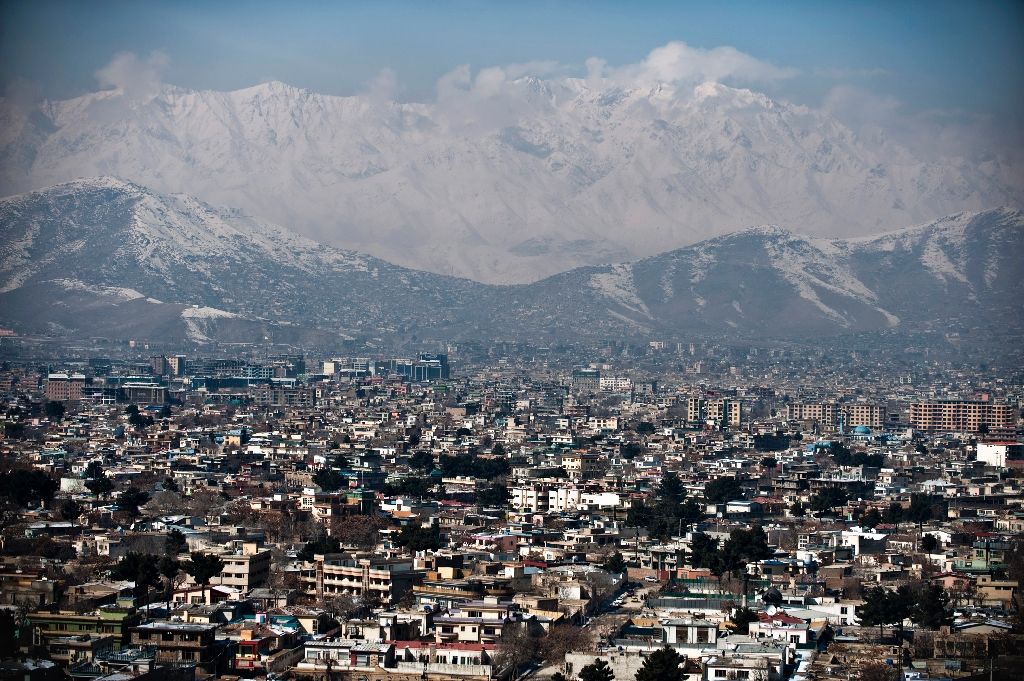
Afghanistan's capital was under lockdown Monday as thousands of minority Shiite Hazaras launched protests over a multi-million-dollar power transmission line, in what could snowball into a political crisis for the beleaguered government.
Security forces blocked key intersections with stacked-up shipping containers in Kabul as the protesters sought to march on the presidential palace, demanding that the electricity line linking energy-rich central Asia pass through a central Hazara-dominated area.
The protest spotlights the turbulent politics in the war-torn nation and follows a massive rally last November galvanised by the beheadings of a group of Hazaras, which symbolised growing public discontent with President Ashraf Ghani's regime.
"Tens of thousands of people are expected to join the massive protest and march towards the presidential palace," Hazara lawmaker Arif Rahmani told AFP.
"We want the power line to cross through Bamiyan, which has seen no development in 15 years. We are demanding justice, not charity."
The 500 kilovolt TUTAP power line, which would connect the Central Asian nations of Turkmenistan, Uzbekistan and Tajikistan with Afghanistan and Pakistan, is regarded a crucial infrastructure project in the electricity-starved region.
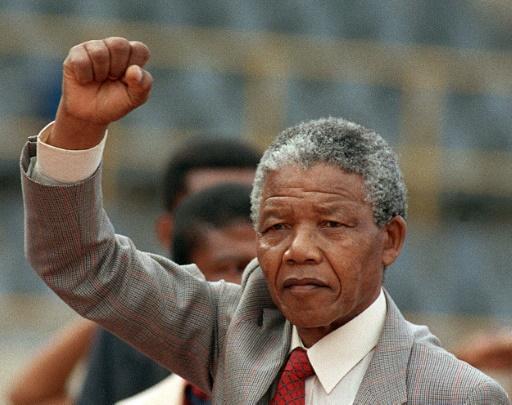
A tip from a CIA spy to authorities in apartheid-era South Africa led to Nelson Mandela's arrest, beginning the leader's 27 years behind bars, a report said on Sunday.
Donald Rickard, a former US vice-consul in Durban and CIA operative, told British film director John Irvin that he had been involved in Mandela's arrest in 1962 which was seen as necessary because the Americans believed he was "completely under the control of the Soviet Union", the report in The Sunday Times newspaper said.
"He could have incited a war in South Africa, the United States would have to get involved, grudgingly, and things could have gone to hell," Rickard said.
"We were teetering on the brink here and it had to be stopped, which meant Mandela had to be stopped. And I put a stop to it."
Irvin's new film "Mandela's Gun", about the months before the anti-apartheid leader's arrest, is due to be screened at the Cannes film festival this week.
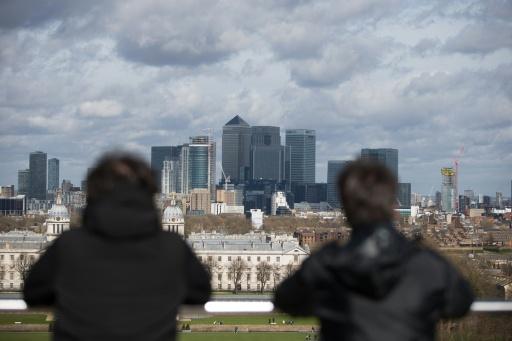
British Prime Minister David Cameron will push for global action on corruption at a summit Thursday attended by the leaders of Nigeria and Afghanistan, countries he was caught describing as "fantastically corrupt".
Nigerian President Muhammadu Buhari and Afghanistan's Ashraf Ghani are attending the London summit alongside the Colombian president, US Secretary of State John Kerry, NGOs and the leaders of the World Bank and IMF.
Cameron has described corruption as "an enemy of progress and the root of so many of the world's problems" and says the summit, which comes amid public outrage over the Panama Papers leaks, will push it to the top of the global agenda.
But he risked embarrassment when he was caught on camera on Tuesday telling Queen Elizabeth II that leaders of some "fantastically corrupt countries" were attending, citing Nigeria and Afghanistan as "possibly the most corrupt".
Downing Street later said both Buhari and Ghani had admitted the challenges their countries face and were invited because of their commitment to tackling them.
- Anger over Panama leaks -
Campaigners are hoping for concrete action from the summit in response to public anger sparked by a huge leak of documents from a Panamanian law firm, which revealed in detail how the rich and powerful hide their money.
Activists want governments to expose the beneficiaries of anonymous companies used to move money without detection, and take further action to reduce the secrecy of offshore tax havens where they are incorporated.
There is also speculation that Cameron will announce measures to tackle money laundering through London's luxury property market, following his declaration last year that there was "no place for dirty money in Britain".
A British official said the summit declaration would commit signatories "to expose corruption wherever it is found, to pursue and punish those who perpetrate, facilitate or are complicit in it".
But The Times reported that a draft being circulated had been watered down following opposition from some countries, with one passage stating there would be "no impunity for the corrupt" removed.
The Russian foreign ministry, which is sending deputy foreign minister Oleg Syromolotov, has already indicated that any final agreement may not be binding.
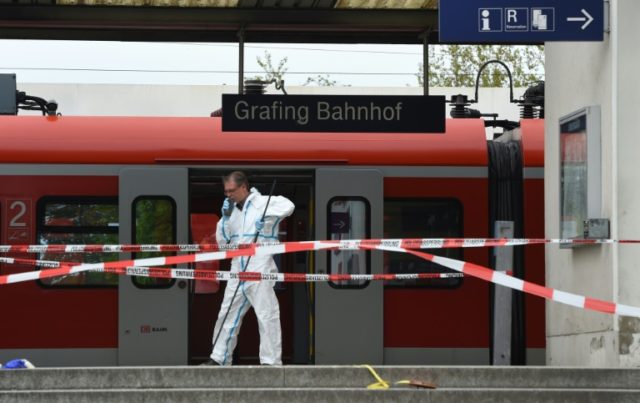
A German man stabbed to death one person and slashed three more Tuesday in what authorities said may have been an Islamist attack, without ruling out that the assailant suffered mental problems.
Police said they had arrested a 27-year-old German national who knifed four people around 5:00am (0300 GMT) at the commuter railway station of the small town of Grafing, east of Munich.
One of the victims, a 50-year-old man, later died of his wounds in hospital. The others injured were men aged 43, 55 and 58. One of the victims was seriously hurt, the other two more lightly wounded.
The "assailant made remarks at the scene of the crime that indicate a political motive -- apparently an Islamist motive," said Ken Heidenreich, spokesman for the prosecutor's office. "We are still determining what the exact remarks were."
Local media reported witnesses as saying the man had yelled "Allahu akbar" (God is greatest) and "you unbelievers" during the attack.
If a jihadist motive is confirmed, it would be the country's third Islamist-linked knife attack since September, but police were also investigating whether the assailant had previous psychological or drug problems.


















